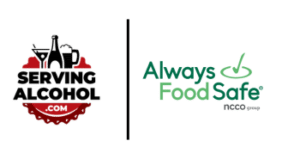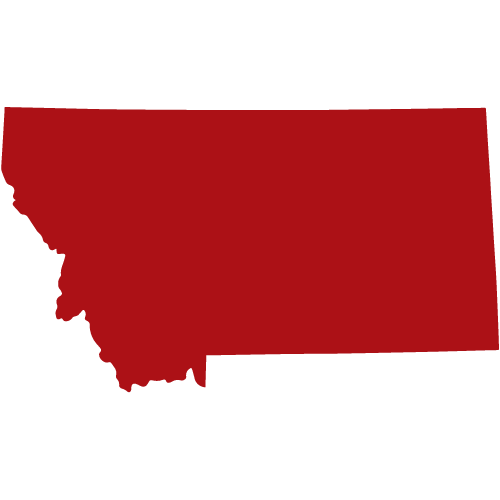Sign In -> Return to Course- State Courses
- Alabama
- Arizona
- Arkansas
- California RBS
- Colorado
- Connecticut
- Delaware
- Florida
- Georgia
- Hawaii
- Idaho
- Illinois BASSET
- Indiana
- Iowa
- Kansas
- Kentucky
- Louisiana
- Maine
- Maryland
- Massachusetts
- Michigan
- Minnesota
- Mississippi
- Missouri
- Montana
- Nebraska
- Nevada
- New Hampshire
- New Jersey
- New Mexico
- New York
- North Carolina
- North Dakota
- Ohio
- Oklahoma
- Oregon
- Rhode Island
- Pennsylvania RAMP
- South Carolina
- South Dakota
- Tennessee
- Texas TABC
- Utah
- Virginia
- Vermont
- West Virginia
- Washington
- Washington DC
- Wisconsin
- Wyoming
- Business Account
- Contact UsSupport Help
- Who We Serve
- Additional Courses
- Blog
- Knowledge Base
- Resources
- Education
- Bartending License Guide
- Bartending 101
- Bartender Terms To Know
- Bartending Tools
- Bartending Tips
- Bartender Skills
- Bartending License Cost
- How Much Bartenders Make
- How Old To Be Bartender
- How to Become a Bartender
- Is Bartending School Worth It?
- Is Bartending A Good Job
- Drinks Bartenders Should Know
- Flair Bartending
- Bartender Statistics In US
- Bartending Class
- Mixology Class
- Best Bartender Guide Books
- Is Bartending School Worth It
- On The Job Training
- Free Bartender Cover Letter
- Job Search For Bartenders
How to Get a Montana Food Handler Certification

Register an account with Serving Alcohol

Enroll into Montana Food Handler course

Pass the exam and receive your certification
Real Food Safety Training for Real Life
Learning should be as dynamic as the food service industry itself. With Always Food Safe, you get video-based courses filmed in real kitchens with real people. Their engaging approach helps you connect with the material, making it more practical and easier to apply in your everyday work.
ANAB Accredited Food Handler Courses
- ANAB-Accredited Certification: Gain a state-recognized certification that meets health department requirements, ensuring you're fully compliant.
- Convenient, Online Learning: Study at your own pace with flexible, engaging video-based lessons that fit your schedule.
- Practice Exams & Two Test Attempts: Increase your chances of success with practice exams and the industry-first offer of two attempts at your certification exam for the price of one.
Montana Food Handler Regulations
In Montana, there are no state requirements that outline a mandatory need for basic Food Safety Training. However, this does not mean that you or your staff members should not have some form of training to understand the essentials of Food Safety. Always Food Safe’s ANAB (ANSI) accredited, online, video-based Food Handler training is the perfect level of training for anyone handling food in a food service organization. The training is fast, interesting and will make you or your employees more competent and confident in the kitchen. This certificate WILL be accepted by your Manager
This certification WILL be accepted by your Manager
Certificate Validity – 3 Years
Passing Score – 75%
County – State Accepted
Mandatory in this Region – No
Course Information
Food Handler Course Content
2 hours of course content consisting of nine chapters with full explanations on food safety training:
- Chapter 1- Introduction to Food Safety & The Law
- Chapter 2- Food Safety Hazards – Pathogenic Bacteria
- Chapter 3 – Allergens
- Chapter 4 – Time & Temperature Controls
- Chapter 5 – Principles of Safe Food Storage
- Chapter 6 – Food Pests
- Chapter 7 – Cleaning
- Chapter 8 – Front of House
- Chapter 9 – Personal Hygiene
Final Exam
- The multiple-choice exam consists of 40 questions
- 75% required to pass (30 questions)
- Two exam attempts (within 30 days) with a practice exam and two chapter end quizzes to help prepare
Learn How To
- Control Food Time and Temperature: Learn how to manage food storage and preparation to prevent harmful bacteria from growing.
- Avoid Cross-Contamination: Discover techniques to prevent contamination between your hands, food, and food-contact surfaces.
- Master Hand Hygiene: Ensure effective handwashing practices to maintain proper sanitation.
- Know When to Stay Home: Understand when you should refrain from working to reduce the risk of spreading illness.
- Sanitize Equipment and Surfaces: Learn the best methods for properly cleaning and sanitizing tools and surfaces that touch food.
Frequently Asked Questions
What is a Food Handler's Card?
A food handlers card is a certificate that shows that you have completed food safety training approved for your state or county.
Who needs Food Handlers Training?
The law varies from state to state as regards mandatory versus voluntary knowledge of food safety.
In 6 states – California, Texas, Illinois, Arizona, West Virginia, New Mexico, (and some local jurisdictions) – they require ALL food handlers within their limits to have a food handler training certificate from an ANAB-accredited certificate program, demonstrating compliance with ASTM E2659, Standard Practice for Certificate Programs, an American National Standard.
Since the government introduced the Food Safety Modernization Act in 2011, it has become very clear that any business that cannot prove their staff has had basic Food Handler training (either via a course or training from a certified Food Manager), is highly vulnerable to penalties should there be any foodborne illness problems arising.
Is Always Food Safe's food handler certificate different from ServSafe or other companies?
It’s the same thing. ServSafe is similar to Always Food Safe and is one of the training providers that have achieved ANAB Accreditation status. Several other training providers have also attained ANAB accreditation.
This means that you can be assured that all ANAB-accredited companies have gone through a rigorous checking process to ensure they meet the standards required.
This is an intensive, 12-month process and the few training providers that are awarded ANAB accreditation can justifiably be proud of gaining this prestigious recognition!
All these organizations, (training providers), meet the required standards for accrediting courses. The course content is the same, although chapter headings and the order of the chapters may vary. All courses include cooking temperatures, fridge/freezer temperatures, bacterial multiplication, cleaning, and pest control because these items must be in line with current Government guidelines. (FDA Food Code 2017).
How long does it take to get a Food Handlers certificate?
A Food Handler certification takes around 2 hours to complete.
How long does a Food Handler accreditation last?
Different states, counties, and cities have different rules on how often they expect you to refresh your Food Handler learning – in some places, it’s every year, and in others, every 3 years. Check our information on your local requirements for more information.
Will my Food Handlers card work in other states?
Taking an ANAB-accredited course means you have met very high standards. The vast majority of local and state health officials are aware of ANAB and by proving your knowledge, you will be demonstrating a strong understanding of food safety.
Taking an ANAB-accredited course will give your local or state health official more confidence in your knowledge. A Health Official is more interested in ensuring that you have received relevant training, that it matches current laws, and more importantly, that you understand the reasons behind food safety and that you are applying food safety practices and methods to your work/role.
Ultimately, your local or state health official is there to ensure that you provide safe food to the public. They are there to help you and by showing them that you have taken an ANAB-accredited course and have passed the exam, you are demonstrating that learning has taken place and you are contributing to your “due diligence” defense.
The most important point is that you receive training, understand it, and implement it!
When must I renew my food safety training?
Different states, counties, and cities have different rules on how often they expect you to refresh your Food Handler learning – in some places, it’s every year, and in others, every 3 years. Check Always Food Safe website for more information on your local requirements.
More Training, More Value, Purchase in Bulk and Save
Certify your Staff with a Business Account
Additional Food and Alcohol Training






